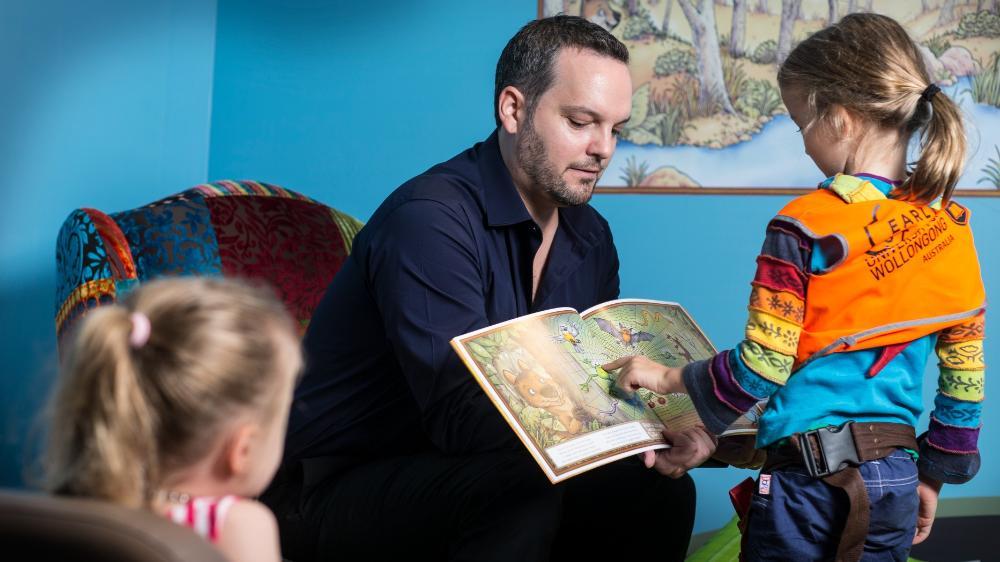August 2, 2023
UOW academics win $2.88m in ARC Future Fellowships
Three researchers will undertake projects from earth sciences, childhood self-regulation and engineering
The University of Wollongong (UOW) secured $2.88 million in funding through the prestigious 2023 Australian Research Council (ARC) Future Fellowships scheme.
Three awarded UOW academics are Dr Nicolas Flament from the Faculty of Science, Medicine and Health, Associate Professor Steven Howard from the Faculty of the Arts, Social Sciences and Humanities and Associate Professor Shiyang Tang from the University of Southampton who’ll be joining UOW’s Faculty of Engineering and Information Sciences (EIS) for this fellowship.
The ARC Future Fellowships scheme plays a pivotal role in facilitating research excellence by supporting outstanding mid-career researchers in conducting high-quality, innovative research with the potential to lead to significant discoveries and advancements.
The three projects from UOW cover diverse fields – from unearthing hidden truths about Earth’s past to advancing our understanding of children’s self-regulation and exploring the applications of supercooled fusible alloys, holding immense promise for driving societal progress and wellbeing.
UOW Deputy Vice-Chancellor and Vice-President (Research and Sustainable Futures) Professor David Currow expressed his pride in the researchers and the ambitious applications of their projects.
“The 2023 awardees from UOW represent various disciplines and industries, but they all share the essence of dedication, hard work and leadership in their fields, driving the frontiers of knowledge and innovation,” Professor Currow said.
Associate Professor Steven Howard’s project, “Unravelling Early Self-Regulation: A Longitudinal Study”, which was awarded $1.1 million, tackles the persistent issues of social-emotional vulnerability in Australian children. It will be an Australian-first study of young children’s self-regulation as they transition from preschool to primary school.
“The project will reveal important insights that can help us target problems of persistent self-regulation challenges – for example, young children’s ‘big behaviours’ after COVID-19 lockdowns and their subsequent digital ‘diets’. It will also identify factors that contribute to strong self-regulation growth. These findings will help us ensure that what we do with and for Australia’s young children will lead to positive social and educational outcomes, now and in the future,” Associate Professor Howard said.
Another fellowship ($958,296) has been awarded to Associate Professor Nicolas Flament for his project, “From Snowball Earth to Animals: The Influence of Mantle Dynamics”, which aims to explore the dynamic origin of environmental changes that led to the evolution of complex life on Earth. By merging state-of-the-art models of Earth’s deep interior with the global rock record, this research promises to unveil crucial insights into the changes in Earth’s global sea levels, climate and magnetic field in the lead up to the appearance of animals 540 million years ago.
“I am thrilled and honoured to receive the funding support for this research project. By delving into the deep history of Earth and studying the ‘Snowball Earth’ events and their impact on the evolution of complex life, I hope to unlock valuable insights into our planet’s past. With investment from the minerals industry, this research can be turned into a frontier exploration tool for metals and critical minerals, which would contribute to Australia’s transition to a low-carbon society,” Associate Professor Flament said.
Associate Professor Shiyang Tang’s work with electro-triggered solidification of supercooled fusible alloys is set to push the boundaries of material science. Traditionally, stiffness in materials has been considered a static property, but this project aims to challenge that notion. Associate Professor Tang, a former UOW Vice-Chancellor’s Postdoctoral Research Fellow who is now based in the United Kingdom, will join EIS for the duration of his fellowship (awarded $826,390).
“This project will turn a problem – i.e. supercooling, a state where liquids do not solidify even below their freezing points – into an opportunity to develop the world’s first composite material with programmable stiffness that can offer all desirable properties for robotics and wearables. Through collaboration with the Australian manufacturing industry, we hope to advance the nation’s global competitiveness in advanced manufacturing and healthcare technology,” Associate Professor Tang said.
